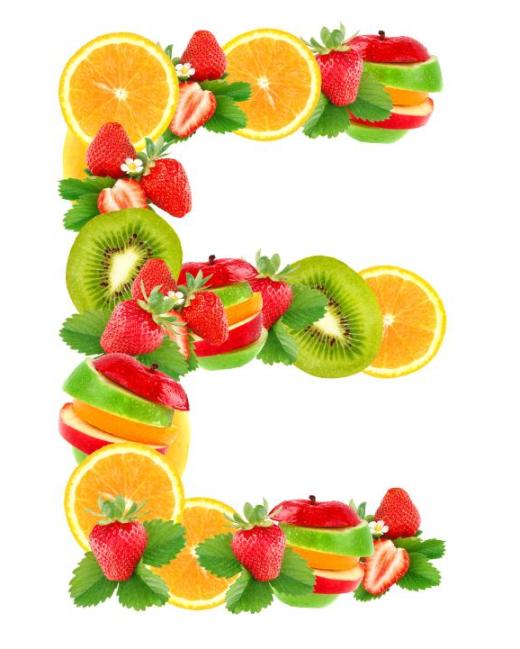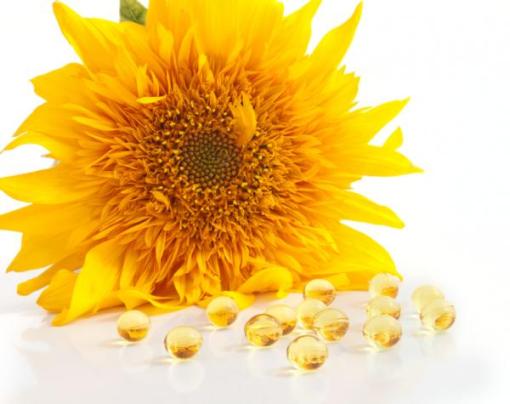Vitamin E is fat soluble. Such vitamin dissolved in fats and oils and stored in adipose tissue and liver. In our body it acts as an antioxidant, protecting cells from the harmful effects caused by free radicals but also stimulates our immune system helping it to protect us from viruses and bacteria, among many other functions.
Given the importance of their performance, when we do not consume sufficient vitamin E with our diet we can suffer some problems, hence the importance of vitamin capsules to supply these deficiencies.
Importance of vitamin E
Vitamin E is more important than we imagine. It is fat-soluble (also belong to this type of vitamins A and D), stored in the liver and fatty tissues. This allows us to go consuming reserves so that our body does not suffer the consequences of its failure.
The recommended daily dose of vitamin E in adults is 15 milligrams per day. However, studies conducted in this regard show that men consume only 6.3 mg per day while women do with about 7.8 mg on average. That is, the vast majority of people, about 90%, ingests less than half of vitamin E that they should.
Vitamin E is an important element in the proper development of our body. The lack of vitamin E can cause:
- Loss of sensory sensitivity
- Muscular weakness
- Little coordination of movements
- Retinitis pigmentosa.
Vitamin E deficiencies have even more severe effects on children. If they do not receive enough vitamin E when they are born and do not receive the suggested treatment, they are likely to develop the aforementioned physical problems.
Benefits of vitamin E
- Antioxidant.
- Regenerates tissues and cells.
- Prevent cancer.
- Reduces the risk of infertility.
- Helps the heart function.
- Promotes collagen production, so it is often found in many beauty creams.
Vitamin E also offers a very important role for the maintenance of the state of the skin. Strengthens the lining of the blood capillaries of the skin, getting better support for hydration and promote its elasticity. Another prominent effect is to reduce inflammation at the cellular level and be translated into a younger skin appearance.
The fragility and hair loss are two very important aspects that are usually given quite important, given its close relationship with our appearance. In such a case, the regular use of vitamin E can help us mitigate these problems.
The main mechanism of help is as we have seen, reduce the effect of free radicals that cause damage to the scalp, maintaining the health of the follicles, since it improves blood circulation to this area, stimulating the growth of hair stronger and healthy.
Another cause of hair loss is related to excessive oil production or imbalance in pH levels of the scalp, because if it stays dry, the sebaceous glands will be forced to produce more oil than necessary, clogging the hair follicles. This leads to other problems such as itching and dandruff, and eventually hair loss.
Other benefits of vitamin E, is its involvement in the production of energy, the synthesis of Deoxyribonucleic acid (DNA) and Ribonucleic acid (RNA). Due to its great ability to act as an antioxidant, it protects cell membranes from oxidation and speculates with its favorable effects against cancer or heart disease.
As recent research, vitamin E may be a treatment to stop Alzheimer’s disease.
Vitamin E Consumption
A shortage of vitamin E in our body can produce anemia, destruction of red blood cells, fatigue, irritability, muscle degeneration and possible disorders in reproduction.
Too much vitamin E can cause a toxic and metabolic problems, nausea and diarrhea.
Foods that contain vitamin E include sunflower oil, corn, soybean, olive, wheat germ, corn, nuts, mayonnaise, liver, green leafy vegetables, tomatoes, asparagus, banana, orange, oats, apple, coconut, beans, egg yolks and margarine.
Sun exposure causes vitamin E is consumed faster, so that in such cases, we must consume a little more than usual.
Related Also: Function of each type of vitamin B
Vitamin E Supplements
There are different types of vitamin E supplements, which differ in both amounts and forms. Now we will explain the factors to take into account when choosing one of them:
The amounts of vitamin E: The vast majority of multivitamin complexes contain about 30 IU of vitamin E, meanwhile, vitamin E capsules contain between 100 and 1000 IU per unit.
These concentrations usually exceed the recommended daily amounts, so you have to know why the capsules are being ingested and how much vitamin E is needed.
Not to take more vitamin E will be more protected against the diseases that causes its deficiency and may cause problems elsewhere.
The form of vitamin E: Vitamin E is not a single substance, but there are 8 different compounds. Each vitamin complex has different forms, so they have different activity levels and different impacts on the organism.
To choose one or the other you should consult with your doctor which one you need to fill your needs. Before starting to take vitamin E capsules you should look at the amount you eat through your diet.
You can see this on the labels of the products you buy. Natural vitamin E, which is present in fruits, vegetables and natural products usually appears as “d-alpha-tocopherol”, while the synthetic appears as “dl-alpha-tocopherol”.
This is important because they have neither the same potency nor the same effects, each 100 IU of natural vitamin E represent about 150 IU of synthetic vitamin E.
To know how to take vitamin E capsules you will have to look at the prospectus of the product that was purchased and follow the doctor’s instructions. If it is done under medical prescription it must be under the conditions set by the professional, while if it is done without a prescription, the recommended limit is 150mg per day.
Precautions for Vitamin E
- Vitamin E is probably safe for most healthy people when they take it orally or apply it to the skin.
- If you suffer from any heart disease or diabetes do not take higher doses of 400 IU/day.
- There is conflicting information about the use of vitamin E in the prevention of prostate cancer.
- High doses of Vitamin E can produce: nausea, diarrhea, stomach pain, fatigue, weakness, headache, blurred vision, itching, bruising and blood loss.
- It is probably safe for pregnant and lactating women. Talk to your doctor anyway.
- Vitamin E may worsen coagulation problems in people whose vitamin K levels are very low.
- Vitamin E could worsen bleeding disorders.
- Stop taking vitamin E at least 2 weeks before undergoing a surgical procedure.
- Vitamin E may increase the effects and side effects of cyclosporine.

